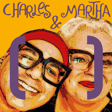
Dr. Timaree Schmit: Burlesque is for Everyone. Dance for Change.
What does it look like to empower women? Queer folks? What does it look like to fight for change through the arts?
Dr. Timaree talks about the history of Burlesque and its role in satire and change. She talks about how the entertainment industry changed during COVID and how she practices presence, gratitude, and self-care in pursuit of wholeness.
Dr. Timaree Schmit holds the Ph.D. in human sexuality education from Widener University. She regularly lectures on the topic, sometimes in the same show where she dances with the alias HoneyTree EvilEye.
CONTENT WARNING: indirect references to childhood trauma, discussion of human sexuality, reproductive health
This episode contains explicit language.
follow Dr. Timaree on instagram: www.instagram.com/honeytree.evileye
check out her podcast, DTF: https://www.drtimaree.com/podcast/dtf
check out her website: www.drtimaree.com
check our her column at Philly Weekly: https://philadelphiaweekly.com/writer/dr-timaree-schmit/
Visit this episode’s sponsor, BVP Coffee, roasting high quality coffee that benefits HBCU students:
https://bvp.coffee/uncommongoodpod
Check us out on Instagram: www.instagram.com/uncommongoodpod
TikTok:
www.tiktok.com/@uncommongoodpod
Subscribe to our YouTube Channel: youtube.com/@uncommongoodpod
we chat to ordinary people doing uncommon good in service of our common humanity.
We are creating community that builds relationships across difference by inviting dialogue about the squishy and vulnerable bits of life.
(un)common good with pauli reese is an uncommon good media production, where we put content on the internet to help people stop hating each other.
thanks for joining us on the journey of (un)common good!





![BONUS: [moim] Gathering, David Rubenstein Atrium at Lincoln Center image](https://media.zencastr.com/cdn-cgi/image/width=112,quality=85/image-files/62b64321a33e0c0035b4bc2e/a5bd46bd-6072-4365-94bb-c1391a3e5105.jpeg)













